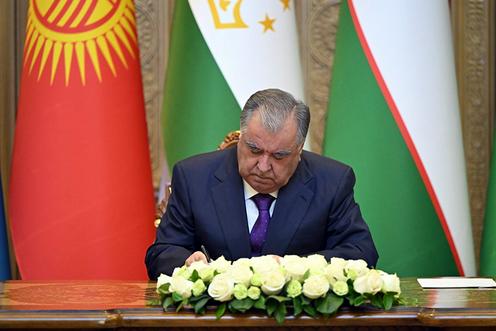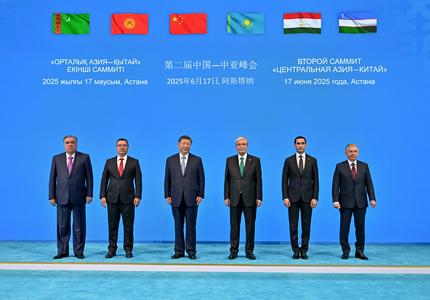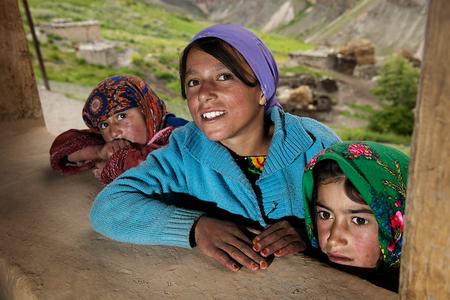President of Tajikistan Emomali Rahmon has signed the Treaty of Friendship, Good Neighborliness, and Cooperation for the Development of Central Asia in the 21st Century.
The signing took place in Dushanbe on August 28 following Rahmon’s meeting with Kazakhstan’s Deputy Prime Minister and Minister of Foreign Affairs Murat Nurtleu. According to the official statement, “joint work on the implementation of this Treaty will serve as a factor in ensuring and strengthening peace, stability, and sustainable development in the region.”
The Treaty of Friendship, Good Neighborliness, and Cooperation was concluded on July 21, 2022, in Cholpon-Ata at the Fourth Consultative Meeting of the Leaders of Central Asia. The presidents of Kazakhstan, Uzbekistan, and Kyrgyzstan signed the document, while Tajikistan and Turkmenistan stated at the time that they first needed to complete domestic procedures.
The treaty commits the parties to “closely cooperate in strengthening peace, stability, and security in the region,” develop collaboration in military and military-technical fields, and assist one another in preventing threats to their independence, sovereignty, and territorial integrity.
▪️ The treaty prohibits its participants from using or threatening force, joining military alliances or blocs directed against one of the parties, or taking any actions against one another. All disputes are to be resolved exclusively through diplomatic means, including by creating special mechanisms of cooperation to settle disagreements.
The parties also pledge not to allow their territory, communications systems, or other infrastructure to be used by third states in ways that could harm the sovereignty, security, stability, constitutional order, or territorial integrity of any of the signatories.
▪️ In its economic provisions, the treaty calls for creating conditions for mutual support of investments, developing industrial, transport, energy, and agricultural cooperation, and establishing joint ventures, logistics hubs, and infrastructure projects. Particular attention is given to the efficient use of water and energy resources and the development of transport infrastructure.
▪️ In the social and humanitarian spheres, the treaty provides for strengthening ties between educational, scientific, and cultural institutions of the region, supporting ethnic, linguistic, and cultural rights, and carrying out joint initiatives to promote the common historical and cultural heritage of Central Asia. In the field of healthcare, the signatories aim to counter epidemics, advance telemedicine, and share experience in medical technologies.
▪️ The document also contains provisions for joint measures against transnational crime, terrorism, illegal migration, human trafficking, and drug trafficking, as well as for developing systems to protect the rights and interests of citizens residing in other signatory states.
It is expected that the treaty’s implementation will advance integration processes, increase the competitiveness of national economies, and create favorable conditions for the well-being of the peoples of Central Asia.










